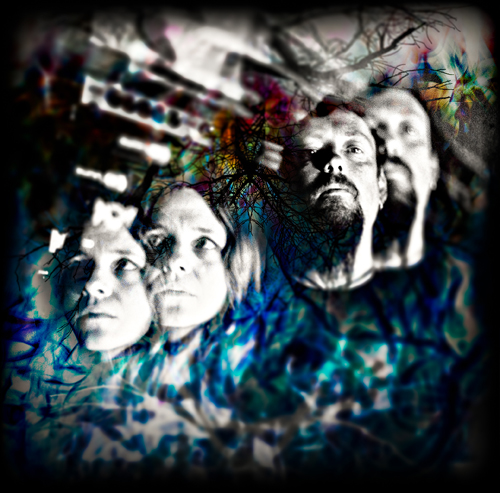Don’t dismiss Voodoo; the extent to which something appeals is always difficult to ascertain when first coming into contact with a new spiritual expression
For me, circumstances at the time of finding Maya Deren’s book The Divine Horsemen: Living Gods of Haiti must have been such that the author’s narrative, weaving firsthand experience and previous literature, simply caught my imagination. Divorced from the orthodoxy of mainstream religions, Deren presented a Haitian physical world occupied by the living, the dead and spirits. Unsullied by the need to find redemption or salvation the spirits or “lwa” impressed their values and morality onto the living world. The resulting interaction between visible and invisible spheres facilitated by practising Voodoo provided an opportunity for the living to receive counsel on how to negotiate their precarious existence. Partially informing their decisions by embodying knowledge through the possession of the body, Voodoo reveals a quintessential dynamism to religious practise. Ensuring a reverence for the dead and the lwa, measured by how much they can help and hinder individual progress produces for the seeker a vital template on how to understand the world we occupy. Vibrant, frightening, dark, enlightening, and jovial, Voodoo encapsulates an existentialism that is normally subdued by the embedded obfuscation most world religions support.
Representing Voodoo as an expression of Satanism is part of an ongoing misapprehension by those who require an opposition to exist so as to justify their control over society
There are no images of Satan other than those used to parody authority during the Haitian carnival season. The only exception to this may be found amongst Quimbanda followers in Brazil who have appropriated images of the devil to subvert power thereby allowing them to manage their own fate.

Even so, due to this and other factors there is still a largely unjustified fear of Voodoo in the West
Some of this fear has a historical derivation, formed from a Western racial angst towards the Haitian slaves for gaining independence in 1804. Since then the Catholic Church, the American occupation of Haiti in the early 1900s and the evangelical movement have combined the emotions of fear and self-loathing with ignorance and have by so doing concocted an identifiable embodied foe as well as racial stereotype. The purpose of doing so is to limit the impact of the unknown on our consciousness. In an attempt to invert the quality of life Voodoo offers to its followers, the media and in particular film perpetuates various misrepresentations ensuring the prevailing negative themes retain a momentum in the face of growing calls for reconciliation.
Of course, this does not mean that there are necessarily any practical implications for Voodoo in Western society
It would not be for me to proselytise Voodoo because people should discover the beauty of the religion through the journey they undertake. Western applications are difficult to identify, however the simple principle of departed family members and spirits dwelling just beyond our physical vision who can be brought back temporarily to dwell amongst the living is an enticing thought whatever your cultural attachment or location.
While I have spent time in Haitian cemeteries It is not cemeteries that I am particularly interested in but how they cause self-reflective contemplation about the existential
It is the life world and the role of death within it that has me so fascinated. For example: when I first visited Haiti I was introduced to a houngan who lived next to the cemetery. He gathered human remains from the cemetery and incorporated them into his ritual procedures. In an attempt to learn more about the extent of his relationship with Baron Samedhi whose cross resided just within the limits of the cemetery, we began discussing the possibility of combining our skills in the designing of hot spots within self made spirit vessels.
Yes, I do have firsthand experience of spiritual possession
Having participated in a ceremony, my first hand experiences are not so much stories as simply witnessing the ferocious power of the lwa upon their individuals within a gathered throng. Possession involves the temporary removal of self while allowing in an occupying spirit. A common analogy is that the person becomes a ‘horse’ for the lwa to ride. Some have said possession can only take place when the person is under the influence of drugs, exhaustion, or alcohol. My experiences were at odds with these points of view because possession took place not long after the ceremony had commenced. Large Haitian women were thrown into the air and across the dancing circle, candles were lit and drawn across wet tongues and dry black hair without either igniting or showing pain. These signs indicated someone wasn’t faking. Blood flowed, the world stood still for a moment, memories were cast in stone.
Despite my experiences and studies I still consider myself a mere student of Voodoo
Having never been initiated I can’t seriously consider myself a vodouisant, however if the offer was made available to me then I would jump at the chance. There are a number of initiations one must undertake before you can become a houngan or mambo. I have been baptised which involved being personally introduced to spiritual allies, Baron Samedhi, Maman Brigitte and Agou Djab to name three. It would be wrong to think though that baptism is a common practise, from what I can tell it was peculiar to the houngan I knew. Just another illustration of the autonomous position each ritual specialist has within Voodoo.
Pombagira are working on a new album for next year and play a show with Altar Of Plagues and Wounded Kings in Bristol on December 3. For this and more information visit the Black Axis Records site



